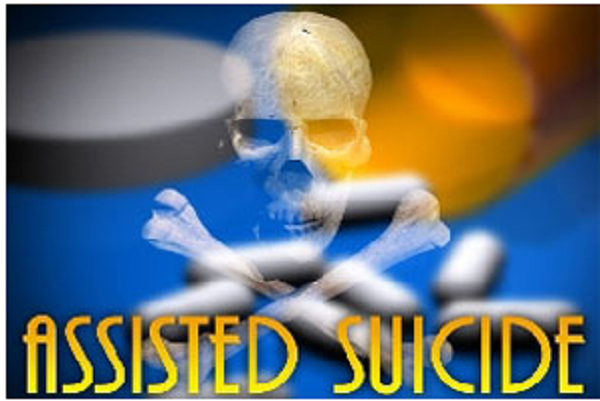The New Jersey legislature today killed a dangerous bill that would have targeted the elderly and disabled and made it the 5th state to legalize assisted suicide. Last year, California became the 4th state to legalize the dangerous practice, following Oregon, Washington and Vermont.
The Assembly version of S 382 passed in the New Jersey Assembly in November 2014, shortly after the death of Brittany Maynard, and was released for a Senate vote by a Senate committee. Since the Senate did not have enough votes to pass the bill, it was not brought up for a vote.
Several other states have been successful in killing similar bills after a coalition of pro-life groups, disability rights advocates and medical organizations defeated them. That same kind of coalition materialized in New Jersey and led to the defeat of the bill.
“The New Jersey Alliance Against Doctor-Prescribed Suicide applauds the New Jersey Senate for recognizing the dangers to older people and those with disabilities and allowing S 382, legislation to legalize assisted suicide, to die without a vote on the floor of the Senate,” stated Kate Blisard of Not Dead Yet, a group for disabled people. “People are surprised to learn that all major national disability groups that have taken a position on the issue oppose the legalization of assisted suicide because the dangers of misdiagnosis, coercion and abuse put us at great risk.”
Democratic Senator Peter Barnes was one of the legislative leaders against the assisted suicide legislation and he said, “A bi-partisan group of New Jersey Senators took the time to listen to the disability-rights community and to understand why it is important that doctor-prescribed suicide not become law in New Jersey.”
“It became clear that this bill would have a detrimental impact on vulnerable populations and expose them to abuse, coercion and possible denial of health care because it costs more than suicide drugs. While the bill’s few, vocal supporters educated legislators as to their personal concerns, it became clear that there are other solutions than doctor-prescribed suicide to address end-of-life pain,” Senator Barnes explained. “For that reason, there was never a groundswell of support for this bill and, on balance, we heard from many more voices opposed to this bill.”
The groups exposed numerous flaws in the bill, including the fact that the assisted suicide legislation had no requirement of mental health evaluation or pain relief consultation, required no oversight on whether the patient was willing to take the lethal drugs, and had no requirement that a medical person be present to supervise the ingestion of lethal drugs.
The bill also allowed a third party familiar with how the patient communicates to make the death request, permitted lethal drugs to remain in a patient’s home without securing them, had no required notification of family members and immunized from prosecution anyone participating in administering lethal drugs, even if their participation was coercive and out of self-interest.
Some of the groups that opposed the bill included the Center for Independent Living, New Jersey Right to Life, New Jersey Catholic Conference, Not Dead Yet, Disability Rights Education & Defense Fund and the American Academy of Medical Ethics.








